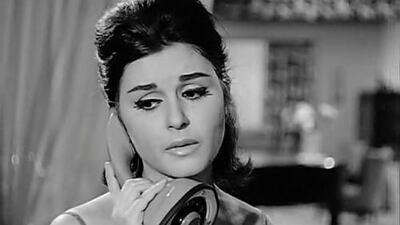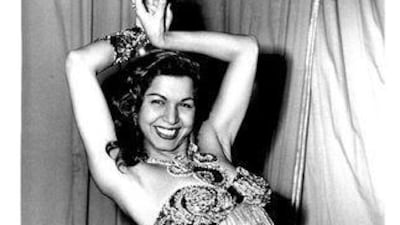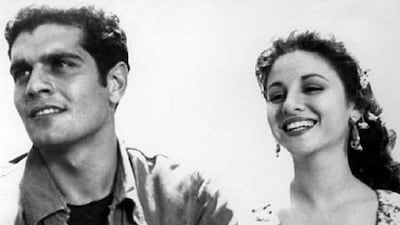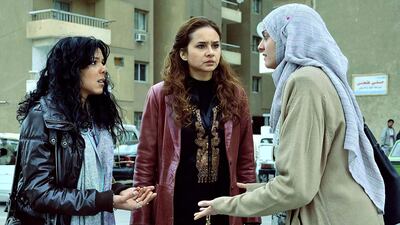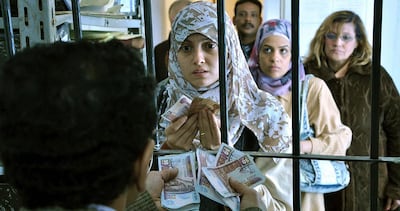Growing up, Yasmine Salam, 22, never really watched Arabic films. Raised in London in an Egyptian family, her preferences veered towards Hollywood movies.
It was not until Salam went to university and saw Caramel by Nadine Labaki in class that her interest in Arabic cinema was ignited. That one film inspired her to spend her final year at Georgetown University studying the portrayal of women in contemporary Egyptian cinema.
"My research is about how women are represented in Egyptian films and how it has evolved from the 1930s up to pre-revolutionary Egypt," she tells The National.
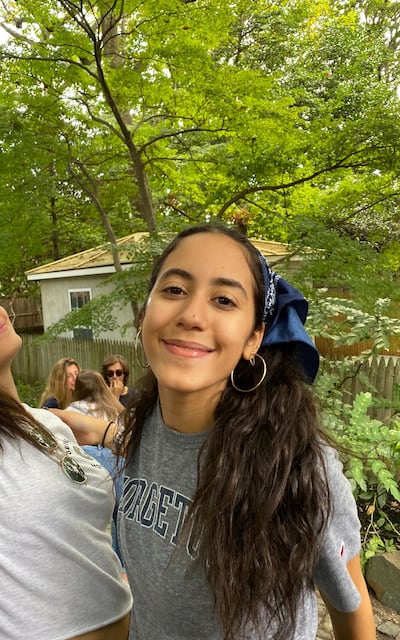
Her main argument is that before the 21st century, women in Egyptian films were presented as tropes.
“They were the bellydancer, the submissive wife or they were the spy on a mission using their attractiveness to reach their goal,” Salam says. “And it was not until the 21st century, and looking into social taboos in Egypt, that women got full representation.”
Salam says that while actresses such as Faten Hamama and Soad Hosny were pioneers during what was dubbed Egyptian cinema’s “golden age”, their characters – when you look closely at the plot line – were not complex and did not face the same obstacles as their male counterparts.
According to Salam, it wasn’t until the 21st century that female characters became more complex, with more depth and gained agency over their actions and space.
The two films that Salam looks at in great depth are Cairo 678 by Mohamed Diab (2010) and Yousry Nasrallah's Scheherazade, Tell Me a Story (2009).
“I found that these two films, and I argue, embody this pre-revolutionary spirit even though they could not have predicted a revolution,” she says, referring to the 2011 uprising, adding that the themes in the film “are exactly like those” that the protesters discussed, and faced.
Cairo 678, which was released a month before the revolution, tackles the issue of sexual harassment on the streets, through three women whose stories intersect in Cairo's heavily congested traffic. Scheherazade, a modern take on the classical 1,001 Arabian Nights, addresses women's issues through the lens of a talk show host called Heba. While the film introduces us to other women's stories through Heba's talk show, her story remains at the heart of the movie.
In both films, Salam explains that the female characters, despite their backgrounds, evolve to question the patriarchal structure they’re in.
“The main takeaway was that, within Egyptian cinema, women have really evolved and transformed from flat portrayals that amplify one facet of their identity into these multifaceted complex individuals that have problems like everybody else.” It is an evolution that Salam says is yet to be seen in the portrayal of Arab women in Hollywood.
For Salam, the research has changed her perception of the power of film. “It’s more than just art,” she says. “It’s really a medium in which you can see what a filmmaker wants to convey about a society.
“I have learnt more from those movies than I have from going to Egypt three times a year, or from classes I have taken on the Middle East.”
In order to keep her research more social, Salam has started an Instagram account to share her findings, an exercise that she describes as rewarding.
And now it's not just Egyptian films that she's interested in. She's exploring all kinds of Arab films, including North African cinema.
"Films go places that humans can't really touch or experience," she says. And that's why she plans to continue sharing and talking about those from the region.
Salam posts her research on Instagram as yazfilmz
